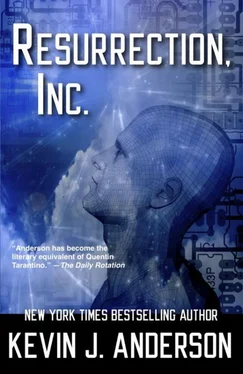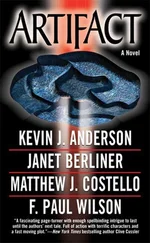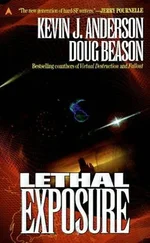He walked off again past the line of vendors, paying little attention to the flower sellers, the caricature artists, the middle-aged man selling cookies. Looking, smelling, experiencing, sensing the instincts of the mass mind of the public, he could almost feel his mental batteries charging.
Nathans particularly liked the singers, especially those who had written their own songs. A new style of mournful street spontaneity had grown popular, called the “blues’ blues.” A man and his sister sat together on a blanket, loudly singing improvised words to the music from a Tchaikovsky tape. Nathans stood listening while the others paused and then moved in. He quickly slid his Net card through the singers’ reader, giving them a small donation. They didn’t break their refrain to thank him, and that pleased him even more.
He walked again, looping around slowly, not anxious to return to Resurrection, Inc. Today he didn’t really feel up to going past Soapbox Derby, though he never tired of listening to the people ranting there. Sure, most of the invective predictably attacked Resurrection, but Nathans felt gratified to see the people thinking at least, planning ways to change the world order. If they kept it up, they might actually succeed in raising their own social consciousness. Otherwise, they would be doing nothing more than assembling furniture, cleaning rooms, lifting boxes, and washing dishes, not thinking of anything beyond their own paycheck.
Out of curiosity, with a faint predatory smile on his face, Nathans slowly came up behind one of the wandering blues. The man’s sluggish movements and dead lack of expression clearly tagged him for what he was. Feeling the game build slowly, Nathans shadowed him, not trying to hide his movements but somewhat disgusted (yet not really surprised) when the blue didn’t even realize he was being followed.
As they moved on, Nathans began to grow almost nauseated by the man’s aimless course, his dejected stance. Nathans wanted to shout, to shake the man and insist that his life didn’t have to be like this—was he a machine that without a mechanical job he was lost? Didn’t humanity have the power to think, letting a man occupy himself with great things instead of trivial “busy” jobs?
Nathans narrowed his eyes, fixing his stare at the back of the man’s head. It was going to be difficult for his own subtle revolution to come about, his own important alteration of society, his vision of the bright and optimistic future. Nothing could happen until most of these pathetic people went away.
A rush of excitement filled him as he reached into his pocket, pushing aside the white sack containing the neo-Satanist pendant and fingering a small tube the size of a penlight. A hisser, an aerosol weapon, a high-pressure subdermal sprayer that could paint a broad layer of toxin onto the skin, unnoticed. The poison would take hours to permeate the stratum corneum to the basal cell layer; once into the bloodstream, the toxin would begin to neutralize the serotonin in the man’s brain, paralyzing all his muscles—including the diaphragm and the heart.
Nathans would be long gone by that time. It didn’t pay to be blatant about murder. After all, he didn’t have anything personal against this particular man, only against his medieval “life is a vale of tears” attitude.
He pulled out the hisser, carefully laying it against his wrist and hiding its tip with his curled fingertips. As Nathans came up behind the blue, he could feel his own blood pounding, his cells tingling with the anticipation. He always felt a sense of triumph when he could do something to bring about the great social change, rather than just sitting back and letting the cumbersome grinding wheels of evolution take their own course.
He saw the hairs on the man’s neck, a few glints of sweat, the naked skin waiting…. The toxin was warm and gentle; he wouldn’t even feel it sprayed on his skin. Nathans raised the hisser, exposing its tip.
But then he stopped himself, realizing that this wasn’t what he should be doing. If his theory of inexorable social change was really true—and he knew it was—then it had to run by itself. It should not require overt action from him, any direct assistance. If the world truly worked according to the “survival of the fittest” paradigm, then it would have to take care of itself. One man killed would not make a difference one way or another.
Nathans hesitated, torn, wishing he could do some thing active for once. He admitted to himself that he would have enjoyed killing the man, but in the end he backed off, bleeding the compressed air out of the hisser as he let the other man move along with the crowd, continuing his ponderous trek.
The walk left Nathans feeling oddly refreshed, exhilarated in spite of the non-confrontation with the blue. He drew in another deep breath of the sweat-mingled air. The breeze picked up, and he had to hold onto his straw hat before it sailed off above all the other heads.
He felt he could go back to his office suite now, ready to play the part of the corporate executive again. Back in front of the great building of Resurrection, Inc., he read the placard from a distance before he ducked inside the apartment complex, finding his special key to #117.
“Servants for Mankind—Freeing Us from Tedium to Pursue Our True Destiny.”
Nathans took the words to heart. The world, the universe was predictable. Everything would work out all right. But he was deathly afraid he wouldn’t see the results in his own lifetime. He had to use all his resources to make sure that it did happen.
Danal left the lights on in his room as he lay awake on the narrow bed, motionless, slowly recharging his energy reserves. The house remained silent. It was long after dark.
Danal’s austere room was sparsely furnished with a bed, a plastic chair and, looking out-of-place, an old, non-functional Net terminal on a small table in the corner. After all, Servants needed few comforts of existence.
Danal lay back, pondering, all alone in the mansion. To pass the night in peace, the Servant realized he could step down the workings of his microprocessor, so that time would seem to pass more quickly. But he was not anxious for his new life to flash by any faster. He didn’t need to sleep, and he wasn’t certain he’d be able to even if he tried. And Danal wasn’t particularly sure he wanted to find out what kind of dreams he would have.
On an impulse he shut off the light and lay alone in darkness. His Master Van Ryman had gone away at dusk, departing for one of the neo-Satanist Sabbats as the population in the streets trickled away to do their evening’s work before the Enforcers’ midnight curfew. As he departed, Van Ryman left Danal with the provocative comment that he had free run of the house to do as he wished.
For the first time, unobserved by needle-sharp eyes, Danal felt able to let his wall down, to drop the Servant facade. It felt so stifling, so unnatural, to respond with mechanical efficiency and passive complacency. At the back of his mind he began to wonder if he was wearing the clever disguise of a Servant, if the flashbacks some how signified that Danal had brought more back with him from death… or if all Servants were like this, all wearing a false disguise to fool the humans.
Danal stood up and left his room. Hesitantly he began to explore the big house, trying not to abuse the privilege. He wandered through the rooms, touching things with gentle awe, looking at hallways, at knickknacks, at a universe of tiny details.
Danal picked up a small vase that held a porcelain rose. He touched a kiln-fired ashtray, crudely made but with an air that suggested the piece was expensive. Danal looked at the elaborate furniture, one piece at a time.
Читать дальше
Конец ознакомительного отрывка
Купить книгу












